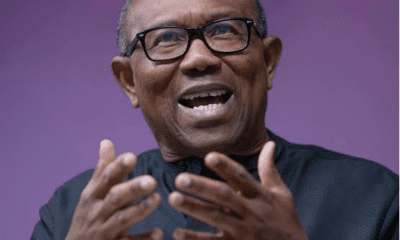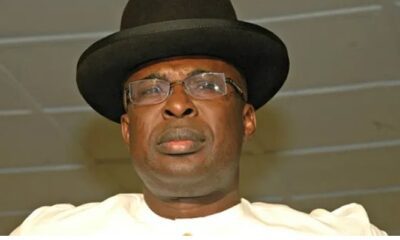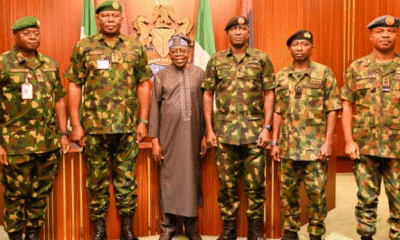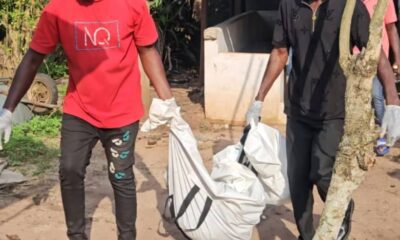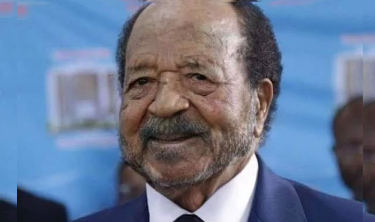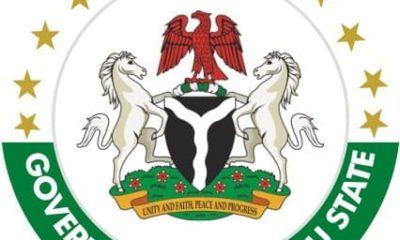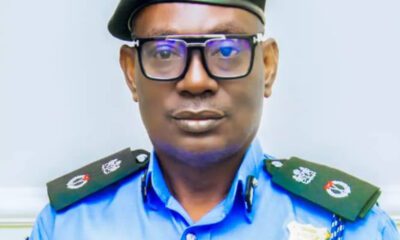
Politics
Nigeria is bleeding, broken and we’re tired
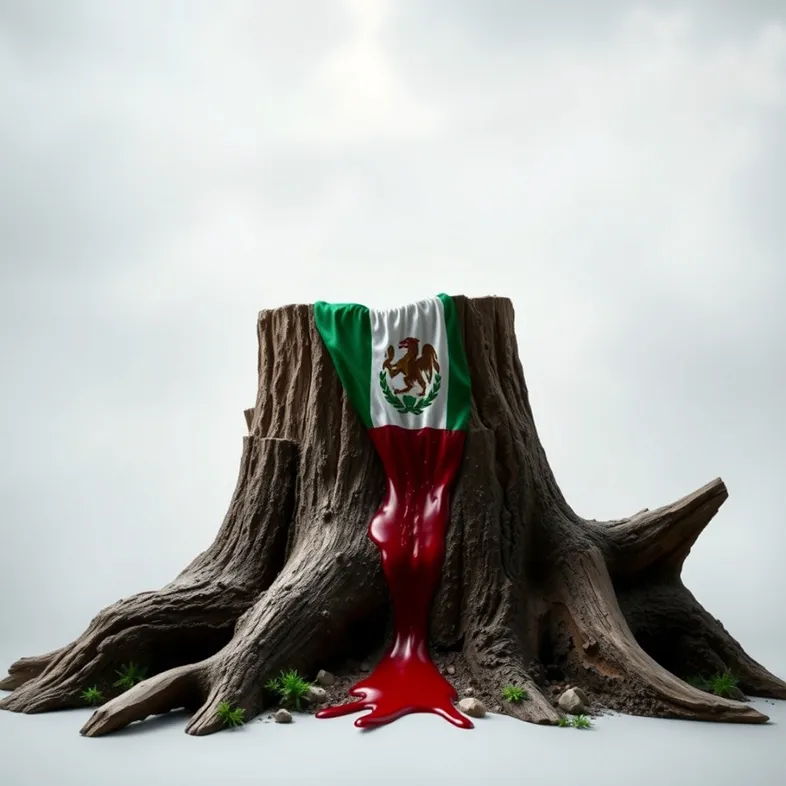
By Agbeze Ireke Kalu Onuma, AI-KO.
I’m writing this essay in a vehicle, on the Ijebu Ode Benin Expressway, because my heart is heavy, and Nigeria is in deep pain. Today June 6th. 2025, our country is bleeding. The unusual presence of armed security men of all sorts, seemingly doing nothing more than extort, brought back to my mind: Just days ago, armed men killed 43 innocent Christians in Benue State. They shot people in their homes, chased families into wells, and hurt even pregnant women and a two-year-old child – all while soldiers nearby did nothing. At the same time, violent herder attacks killed over 50 people in the Northwest, and kidnappers are terrorizing Sokoto.
These aren’t just bad news stories. They’re signs that Nigeria is falling apart. Yet, the government is throwing parties to celebrate two years in power – two years of economy crashing, security disappearing, and broken promises.
This is what our elders mean by leaning on a “dead stump.” Nigeria feels like a rotten tree trunk – looks solid but is crumbling inside. Our leaders have let everything break down:
• Farmers bury children killed in land fights
• Doctors run away from hospitals falling apart

• We pay for light, security guards, and water because the government fails us
This essay is my reflection and exploration of how a country with so much promise became a shell picked clean by the rich and powerful.
In today’s Nigeria:
• Big people break laws without punishment
• 87 million live in deep poverty despite our oil money
• Nobody trusts the government – worst in Africa!
• Hope is leaving: 15,000 doctors fled in 7 years
The Benue killings show the truth: A government that can’t protect its people has failed. When killers murder civilians near soldiers who do nothing, the “dead stump” isn’t just rotten – it’s collapsing under us. Violence now costs Nigeria $132 billion yearly – money that could fix schools, hospitals, and roads.
I write this not from hopelessness, but from angry love for our country. Nigeria doesn’t need small fixes – it needs total rebirth. We must dig up the old roots of injustice and plant new seeds of fairness, equality, and the stubborn will to take back the future stolen from us all.
Nigeria perches precariously, leaning with unsettling trust on what Yoruba wisdom grimly identifies as a “dead stump.” This potent metaphor captures the essence of a nation seemingly balanced on rotten foundations, its immense potential – vast natural wealth, a vibrant cultural mosaic, teeming human capital – grotesquely overshadowed by the daily reality of systemic collapse, normalized irrationality, and profound disillusionment. The lived experience of Nigerians paints a picture of a country dangerously close to decomposition, where entrenched corruption, deep social fragmentation, and a worrying cultural numbness have become the defining features of national life. The irrationality of governance isn’t an occasional lapse; it is the pervasive, suffocating air we breathe.
This decay didn’t sprout overnight. Its roots dig deep into historical traumas, weaponized by generations of failed leadership. The arbitrary borders drawn by British colonizers forced disparate ethnic nations into a fractious administrative whole, a fault line expertly exploited by post-independence elites who replaced the dream of unity with the brutal calculus of competitive plunder. Military regimes merely institutionalized this corruption, building governance structures designed solely for extraction. The much-vaunted return to civilian rule in 1999 promised regeneration but delivered, tragically, recycled predation. Former military strongmen seamlessly rebranded as democrats, perpetuating kleptocratic traditions. As the prophetic Fela Anikulapo-Kuti declared decades ago, Nigerian democracy became “demo-cracy, crazy demo, demonstration of craze” – a hollow theatrical performance where elections serve only to legitimize grand theft. Decades later, Fela’s scathing critique remains painfully apt; the rituals persist, utterly divorced from democratic substance.
Nigeria as I have repeatedly said, is a country leaning on a rotten tree stump – it looks like it’s standing, but inside, it’s dead and crumbling. We see the proof everywhere: the terrible killings in Benue where soldiers watched and did nothing, kidnappings terrorizing Sokoto, millions trapped in deep poverty while oil money vanishes, hospitals losing doctors every day, and powerful people breaking rules without any punishment. We can’t pretend any longer. The old system – our “dead stump” – is collapsing under us.
The core pathology is a kleptocratic ecosystem operating with near-total impunity. A cabal of political elites, bureaucratic tacticians, and corporate magnates treat the nation as their personal criminal franchise, shielded by immense wealth, intricate connections, and a deeply compromised judiciary. The brazen looting of pension funds meant for retirees, where billions simply vanished, stands as a stark monument to this impunity – perpetrators faced mere slaps on the wrist despite public fury. Similarly, the fuel subsidy fraud saw trillions siphoned away through a complex web of institutionalized complicity involving oil magnates and state officials. This pervasive corruption fuels a parallel tragedy: the normalization of madness. Chronic electricity collapse, despite staggering investments, has made the incessant drone of personal generators the national soundtrack of state failure. The dilapidation of public education – underfunded institutions, unpaid teachers, perpetual strikes – now evokes weary resignation rather than outrage. This collective desensitization allows governance absurdities to replicate endlessly, from collapsing infrastructure to policies utterly divorced from the people’s reality. We witness the glaring contradictions daily: democratic accountability promised, yet “untouchable thieves” reign supreme; vast oil wealth flaunted, yet 33% unemployment and 63% multi-dimensional poverty grip the populace; national unity proclaimed, yet deepening ethnic and regional fissures make Chinua Achebe’s observation – “Nigerians don’t believe Nigeria exists” – resonate ever louder; rule of law enshrined, yet a two-tiered system prevails where elites enjoy “plea bargains” while the masses face brutalization.
This decomposition violently fractures the social fabric along lines of inequality and escalating violence. Ethnic and religious schisms, cynically manipulated by elites to distract from shared predation, deepen daily. The disillusionment felt by Northern Nigerians witnessing violence against southerners in India revealed a painful irony: despite perceived cultural affinities fostered by Bollywood, Nigerians abroad are crudely stereotyped as “drug traffickers” or “Boko Haram terrorists.” As one commentator starkly put it, “Outside Nigeria, a Christian southerner is as likely to be stereotyped as a Boko Haram terrorist as a northern Muslim is to be tagged a drug trafficker.” Meanwhile, deliberate resource maldistribution creates stark realities of abandonment. Blinder-Oaxaca decomposition analyses lay bare how material deprivation drives profound inequity. Rural women bear a staggering burden, experiencing 79.77% of sexual violence among disabled populations. Contraceptive access reveals a rural-urban gap where 82% of the disparity stems purely from wealth and education deficits. Healthcare apartheid persists grimly: maternal mortality is 14% higher in rural areas, where 72% of women lack skilled birth attendance. These aren’t accidents; they are the calculated outcomes of systemic neglect.
Perhaps the deepest decay is spiritual and ethical – a collective numbness, a normalization of the abnormal. Society increasingly worships at the altar of ill-gotten wealth. Opulence commands adulation regardless of its criminal provenance, framing wealth accumulation as life’s ultimate, and often only, metric. This pervasive moral ambivalence actively enables the cycles of rot: “Unethical conduct is lauded, perpetuating institutional rot.” The symbolism is potent when even high-ranking officials stumble over reciting the National Pledge – a vanished moral compass laid bare. Fela’s enduring diagnosis – “poor man dey cry, rich man dey mess” – still perfectly encapsulates the void where a social contract should reside. Cultural influencers, from Chimamanda Adichie’s piercing novel Americanah to Joy Alagbe’s powerful visual art, document this profound existential disillusionment. Alagbe’s 2023 Democracy Day piece, literally inscribing Fela’s “demo-crazy” critique onto the canvas, serves as a haunting reminder that the fundamental pathologies diagnosed decades ago remain stubbornly, tragically unchanged.
This internal decay inevitably tarnishes Nigeria’s global standing and the dignity of its citizens abroad. The nation suffers from toxic branding. The 2013 murder of a Nigerian in Goa ignited tensions, exposing how internal failures export shame, with Indian media and top ranking officials quick to stereotype Nigerians as “cancers” and “drug traffickers” – labels conspicuously absent when describing Russian or Israeli narcotics operatives. Studies, including one from Sweden, confirmed India as “the most racist society” for Africans, facing hostility comparable to that endured by India’s own 200-million-strong Dalit community. Unsurprisingly, a massive brain drain exodus is underway, a haemorrhaging of human capital driven by sheer disillusionment. Over 15,000 doctors fled between 2015 and 2022 alone, stripping the nation of the very innovators it desperately needs for any hope of renewal.
The unrelenting bloodshed across Nigeria – from the coordinated slaughter of 43 Christians in Benue to the mass kidnappings in Sokoto and the 50 lives erased in Northwest attacks – demands more than perfunctory condemnations. It compels piercing questions about a security architecture rotting from within, funded by billions yet yielding only corpses and despair. These are not isolated tragedies, but symptoms of systemic collapse.
The Theatre of Security: Why Do Checkpoints Exist If Soldiers Watch Killers Operate “Within Earshot”?
In Benue, attackers executed civilians opposite military checkpoints while soldiers stood passive . This mirrors the Dapchi schoolgirl abduction, where security forces received five separate warnings over four hours about approaching Boko Haram fighters yet took no action . What operational philosophy justifies deploying soldiers to “secure” highways if their role is spectral – recording atrocities but never preventing them? When the Army itself admits withdrawing troops from hotspots like Dapchi months before attacks , is this incompetence, cowardice, or complicity?
2. The Arithmetic of Betrayal: Where Do ₦4.1 Trillion Security Budgets Vanish?
Customs intercepts in 2023 – 2024 alone seized 451,771 firearms , yet terrorists still wield General Purpose Machine Guns on highways . Nigeria spends 8% of GDP ($132 billion/year) on violence containment , but soldiers lack bullets, communities have no police, and hospitals hemorrhage doctors. Who profits from this economy of carnage? Why does weaponry flow ceaselessly through 10,000 porous borders , while security chiefs flaunt promotions based on political loyalty, not merit ?
3. The Supply Chain of Terror: Which “Powerful Sponsors” Fuel the Arms Pipelines?
Firearms seizures expose Turkish smuggling networks shipping shotguns concealed in furniture , while Libyan conflict spillover floods the North with arms . Yet arrests of financiers vanish. The UAE named five Nigerians as terror sponsors in 2022 – why has none been prosecuted ? When elites openly fortify political thugs with weapons for elections , and state actors enable herder militias to seize Tiv farmlands , is the state arming its own enemies?
4. The Currency of Complicity: Why Do Officials Prefer “Speeches Over Action”?
After the Benue massacre, the federal government celebrated its second anniversary while villages buried their dead . When 110 Dapchi girls were abducted, authorities first denied it, then falsely claimed rescue . This mirrors the Chibok playbook: investigations ordered, reports buried. Senior Advocate Terkaa Aondo accuses state governments of complicity in land grabs, noting that attacks “are not random” but strategic dispossessions backed by official silence . Who issues the orders to stand down?
5. The Machinery of Impunity: Why Are Security Forces Rewarded for Failure?
Police kill 785 “robbers” in 100 days but lose 62 officers – a kill ratio signaling extrajudicial executions . Yet not one officer faced consequences for ignoring Dapchi’s warnings . When 72% of Nigerians deem police irredeemably corrupt , and officers extort bribes at checkpoints instead of patrolling, why are they deployed as VIP guards for politicians? What perverse incentive structure rewards incompetence with promotions?
6. The Cost of Collusion: When Did Citizens Become Sacrificial Lambs?
Farmers bury children butchered over contested land . Parents in Dapchi heard their daughters’ cries as Boko Haram marched them into darkness . South Easterners cower under sit-at-home orders while police vanish from streets – a tacit state surrender to non-state terror . Every life lost is a referendum on a state that taxes the poor to arm the rich, protects elite mines in Nasarawa but leaves schools defenseless.
Nigeria bleeds from self-inflicted wounds. The “dead stump” is not just rotten – it is fertilized by a ruling class that profits from chaos. Until we demand answers to these questions, until we trace the blood money funding terror, and until we dismantle the architecture of impunity, the stump will collapse – and bury us all.
Yet, decomposition need not be terminal. Biological truth teaches us that rotting wood nourishes new growth. Nigeria’s salvation demands radical honesty about the depth of the rot and the courageous cultivation of new foundations. An institutional overhaul is non-negotiable – anti-corruption agencies like the EFCC require genuine constitutional autonomy, transparent operations, and sweeping judicial reform to finally hold elites accountable. Pension and subsidy looters must face exemplary consequences, not the insult of plea bargains. This must be coupled with a profound civic reawakening. Reclaiming nationhood demands sustained grassroots mobilization, rejecting electoral apathy and holding leaders to account through vibrant civil society and fiercely independent media. Crucially, leadership paradigms must shift from corrosive patronage to rigorous meritocracy. Initiatives like a National Values Charter must move beyond rhetoric, with elites compelled to visibly use Nigerian hospitals and products. Blinder-Oaxaca analyses prove that equitable wealth redistribution is essential. Universal healthcare, pro-poor education funding, and rural electrification are not luxuries but necessities to reduce the desperation fuelling fragmentation.
General Christopher Musa’s recent disclosure – that Boko Haram thrives on fuel siphoned by commercial drivers, buried in jerrycans, and phoned in to terrorists – is less a revelation than a damning indictment of institutional paralysis. This supply chain has fueled genocide, yet the military’s response remains confined to speeches. rather than systemic action. When intelligence identifies drivers colluding with terrorists, what tangible steps follow? Are these enablers arrested, prosecuted, or dismantled? Musa’s admission echoes a pattern: security elites know the mechanics of terror but outsource responsibility to civilians while evading their own failures .
Consider the lethal irony: soldiers idle at checkpoints as terrorists slaughter civilians “within earshot,” yet the Air Force repeatedly bombs vigilantes and displaced camps – killing 120 in Tudun Biri (2023), 40 during Eid prayers (2024), and 20 more in Zamfara (2025) – all branded “mistakes” . These are not errors but symptoms of a rot: poor training, outdated intelligence, and zero accountability. When a jet can bomb citizens pursuing kidnappers but fail to intercept fuel smugglers, the system isn’t malfunctioning; it’s complicit.
Musa’s plea – “report suspicious activities” – rings hollow when communities doalert forces, only to face military brutality or airstrikes. In Borno, civilians reporting Boko Haram movements risk being labeled “sympathizers” and detained without trial . Meanwhile, security budgets vanish: ₦4.1 trillion evaporates while terrorists wield machine guns and troops groan over unpaid allowances . The Army Chief’s intelligence is useless if it never translates into raids on fuel depots, sting operations against informants, or protection for whistleblowers.
Terrorists evolve: they exploit borders, hack financial systems, and globalize recruitment via preachers like Ahmad Musa Jibril . Yet Nigeria’s security playbook stagnates in denial – blaming “external forces” like “Californium in Borno soil” while ignoring internal treachery . When bandits overrun villages, commanders peddle conspiracy theories; when airstrikes massacre civilians, investigations are buried. This isn’t incompetence – it’s a conspiracy of indifference where excuses are perfected as policy.
This recent disclosure about Boko Haram’s fuel supply chain – where commercial drivers siphon fuel, bury jerrycans, and phone terrorists – is not intelligence but a confession of institutional surrender. For 16 years, this same supply network has operated with impunity while security checkpoints function as passive observers to genocide. When terrorists slaughtered 43 Christians in Benue “within earshot” of military posts, soldiers reportedly stood passive – a pattern echoing the 2024 Dapchi abduction, where five advance warnings were ignored . Musa’s solution? A surreal proposal to fence Nigeria’s 4,477 km of borders , despite failing to secure a single highway checkpoint. This disconnect reveals a leadership culture prioritizing grandiose, unworkable projects over tactical competence. As security analyst Kabiru Adamu notes: “When a military cannot intercept fuel smugglers in areas it controls, fencing borders is like building a mansion on quicksand.”
Nigeria’s security budget has ballooned to ₦4.1 trillion annually, yet terrorists wield machine guns while troops ration bullets.
Recent findings expose catastrophic mismanagement:
• Airstrike misfires killed 120 civilians in Tudun Biri (2023) and 40 Eid worshippers in Zamfara (2024) due to “poor intelligence” – yet no commanders were court-martialed .
• Border security funds vanish amid weapons proliferation: Over 450,000 firearms were seized in 2023–2024 , yet terrorists still import drones and explosives through “protected corridors” . Governor Zulum’s warning that “Borno is losing ground” underscores the collapse .
Former Defence Minister Bashir Magashi’s admission is damning: “Appropriations are siphoned through phantom contracts – bulletproof vests become substandard, surveillance drones never arrive.”
Security agencies now operate as autonomous criminal enterprises:
• EFCC “sting operations” continue despite a 2023 ban, with officers raiding nightclubs and assaulting citizens .
• DSS death squads illegally detain journalists and invade courts to re-arrest defendants .
• Police extortion networks institutionalize bribery at checkpoints, with officers paying superiors for “lucrative” postings .
This lawlessness is shielded by a judicial cabal: 72% of corruption cases against security elites stall indefinitely, while #EndSARS and other protesters remain jailed without trial .
While officials blame “foreign fighters,” evidence points to domestic complicity:
• Weapons pipelines flow through ports controlled by political godfathers. The 2023 Sokoto arms haul traced AK-47s to a former governor’s warehouse .
• Terrorist financiers named by the UAE in 2022 remain unprosecuted, with two holding VIP access to National Security Council meetings .
• Military promotions favor loyalists over competence. Major General Abdulsalam Abubakar’s recent appointment as Northeast commander – the 15th in 16 years – followed ISWAP’s drone strike killing 26 in Borno . No overhaul followed.
As it is today, Nigeria’s security crisis is not a resource problem but a crisis of malignant intent. As the CDD West Africa concludes: “When security agencies become profit centers, citizens become expendable commodities” . Until:
1. Budget transparency publishes monthly security spending;
2. Command accountability jails officers for operational failures;
3. Civilian oversight empowers independent investigators to audit arms deals;
4. Community militias receive legal recognition and direct funding, bypassing corrupt chains –
The bleeding will continue. The dead stump isn’t leaning; it’s being monetized.
The solution isn’t more and more speeches. It demands:
1. Targeted dismantling of supply networks: Track fuel sales, arrest collaborators, and publicize prosecutions.
2. Reform airstrike protocols: Mandate visual confirmation, integrate ground intelligence, and punish “mistakes” as war crimes .
3. Purge corruption: Audit security budgets; jail officers diverting funds while soldiers starve .
Until then, Musa’s words are ash in the wind – another confession without consequence, as Nigeria burns.
As historian Toyin Falola reminds us, nations leaning on dead stumps face only two futures: collapse or a deliberate uprooting to fertile ground. Nigeria’s dangerous perch at the nadir of coherence and hope demands urgent action. Fela’s eternal cry – “God Help Nigeria” – echoes still, but the response cannot come from heaven alone. It must spring from Nigerians finally reclaiming their soil, branch by branch, value by value, decomposing the corrupt systems to make space for institutions rooted in justice and nurtured by active, unwavering citizen agency. The alternative is not stagnation, but implosion. The time to step off the dead stump is now.
Picture a huge, old tree in a forest that’s been dead for a long time. Beetles ate it from the inside. Disease spread through it. Storms scarred it. But because it still looks tall, people keep leaning on it, trusting it to hold them up – even though it’s rotten inside and could collapse any moment. That dead tree stump is Nigeria.We’re leaning on the empty shell of a country. The things that made it strong – fairness, honesty, working together – are gone. We’re just holding onto the name and the land, pretending it’s still alive while the ground shakes under our feet.
But here’s the important thing: rotting wood isn’t just falling apart – it’s getting hot inside. Tiny things are breaking down the old wood, turning it back into soil that can grow new life. That heat? That’s our pain. It’s the families crying in Benue after the killings. It’s the fear of people kidnapped in Sokoto. It’s the sadness of doctors and nurses forced to leave the country. It’s the anger of farmers ignored by the government. This heat isn’t bad – it’s powerful. It’s a sacred power, a sign we can’t ignore how broken things are anymore. If we stay numb, if we keep pretending the dead stump is safe, the heat will explode – either in chaos that destroys everything, or as a fire we control to clear the way for something new.
So, what do we do? We have to stop leaning on the dead stump. It’s scary to step away. We might feel unsteady. But only then can our feet touch the good soil underneath – the soil made rich by the rotten wood. This soil is the truth we’ve forgotten:
• Real power belongs to ordinary people, not to thieves in big houses.
• Real safety comes from everyone getting fair treatment, not from letting the powerful do whatever they want.
• Real wealth is a healthy child, a good harvest from a safe farm, a bright student learning – not stolen oil money.
Building a new Nigeria means:
1. Stop admiring stolen wealth. Respect honest work instead.
2. Demand clean government. Leaders and thieves must face real consequences, not secret deals.
3. See each other as Nigerians first. Forget dividing lines like North/South or Christian/Muslim. Our strength is in our shared humanity and right to a good life.
Let the terrible killings in Benue and Sokoto be the final warning – the loud crack that tells us the dead stump is breaking. Let the government celebrating two years of failure be the last empty noise from the old ways.
But here’s the hope hidden in this mess: just like rotting wood eventually becomes rich soil that grows new trees, our pain and anger can become the fuel for rebuilding Nigeria. This won’t happen by wishing or waiting. It needs all of us to act, starting with practical steps we can take right now.
First, we must fix justice. We need special courts dedicated only to corruption cases – courts that work fast and can’t be bribed. If you steal money meant for pensions or fuel subsidies, you must pay back every single kobo and go to jail. No secret deals, no exceptions for big names.
Second, government must start working for the people, not the politicians. Leaders should be required to use Nigerian hospitals and schools like everyone else – no more flying abroad for treatment. Our oil wealth needs to be shared fairly: used to feed the hungry, fix rural clinics, and pay teachers properly so they stay.
Third, we have to choose unity over division. See each other first as Nigerians – not just as Christian, Muslim, Yoruba, or Hausa. Celebrate people who earn money honestly through hard work, not those who flaunt stolen wealth. Teach our children that good character – what the Yoruba call Ìwà lẹwà – is true beauty, worth more than flashy cars or empty fame.
Fourth, we must protect our homes and communities. Retrain the police and army to focus on protecting ordinary people, not just guarding politicians. Give communities safe, anonymous ways to report kidnappers and criminals so everyone feels safer.
Finally, change starts with us, every single day. Register to vote and actually hold leaders accountable for their promises. Support Nigerian businesses – buy local products to create jobs here at home. Mentor a child, plant a tree, clean your street. Rebuild Nigeria from the ground up, one act of responsibility at a time.
The choice is clear: we can keep leaning on the dead stump until it crashes down on us, or we can step onto the solid ground of truth and start planting new seeds for our future. This isn’t about politics; it’s about our survival and dignity. Our own traditions show us the way: the Yoruba value good character, the Hausa know that Gaskiya (truth) is greater than anything, and the Igbo teach Egbe bere, ugo bere – live and let live. We have the wisdom. We have the people. What we need now is the courage to act together.
Stop leaning on the rotten past. Feel the good soil beneath your feet – the soil made fertile by our shared struggle and hope. Start planting the seeds of a new Nigeria today. Remember this old wisdom, renewed for our time: “A tree rots from the roots, but mighty forests grow from scattered seeds.” Let’s be the ones who scatter those seeds.
The time for just leaning is over. The time for planting is now.
Gather the good seeds from our deepest traditions – the Yoruba Omoluabi (good character), the Hausa Gaskiya (truth), the Igbo Ezi Omume (righteous conduct). Plant them firmly in the burned ground of our disappointment. Water them with the tears of those who mourn and the hard work of those ready to rebuild. Protect these seeds with the organized will of a people who finally know their own strength.
The new Nigeria won’t grow overnight. It needs patience, hard work, and watching carefully so the old rot doesn’t come back. But it will grow. Not as a sad memory of the past, but as a living future where our children and grandchildren can finally find shelter and peace.
If you have read this far, I say:
Step off the dead stump. Feel the good soil. Start planting.
Politics
Tinubu heats up Ukachukwu’s Anambra Nov 8 Guber hopes

By Chuks Collins, Awka
The effort of Gov Chukwuma Soludo to pass off himself as a true progressive, hence an ally of President Bola Ahmed Tinubu may have been punctured.
Addressing a mammoth crowd of supporters, political enthusiasts, party faithful at St Mary’s Catholic Church Field Ugwu-na-adagbe, Aguleri Anambra East Council area Tuesday afternoon, the Governorship flagbearer of the All Progressives Congress (APC), Prince Nicholas Ukachukwu exposed what he described as a false and dubious narrative.
According to the APC flagbearer, “President Tinubu is a reputable politician and party man. He cannot abandon his party to cavort with any other.,.”

That the other governors- Edo, Imo, Ebonyi, Enugu and others saw something very good in APC. Therefore he has sworn to lead Anambra as heartland of the East to connect to the center.

He therefore appealed to all the electorates to troop out en masse on Nov 8, 2025 to vote for APC in the all 326 electoral wards in the 21 Councils of Anambra State.
He pointed out that the same political lie was sold years back to the former President Muhammadu of blessed memory. But at the end of the day it turned out a mere hoax.
“So, for those now making similar childish and outlandish promises just to have their way on Nov 8, it will surely not fly.
“One wonders where those promising to bankroll President Tinubu’s 2027 reelection campaign as a dead-on-arrival matter. Where would they get the funds from?, he asked rhetorically. And that it was a mere booby trap to accuse the president of being responsible for the poor performance being witnessed presently in Anambra,” the APC guber candidate said.
Ukachukwu therefore assured Nigerians, especially Mr President and Anambra citizens to remain focussed on the Nov 8, 2025 goal, assuring that immediately after winning, his next major political assignment would be to team up with other Governors and progressives to deliver President Tinubu in 2027.
The APC flagbearer therefore charged the rabble-rousers to tender their four year scorecard as a fulfilment of initial promise, before making another promises.
He charged all Anambra citizens to trust him that he shall honor all Councils that identify with him with worthy packages to reciprocate their support for him in the coming Guber poll.
Earlier, while addressing people of Anambra West at Umueze Anam, the people collectively left their seats and canopies and assembled at center of the arena and swore in their honour to give Ukachukwu one hundred percent voting support to him. In reciprocity, he assured them massive life-enhancing projects, appointments, road network, security and quality electricity and many more.
He spoke in like manner at the St Mary’s Catholic Church, Ugwu-na-adagbe, Aguleri venue for the Anambra East rally, the Governorship hopeful lamented the general state of affairs in every part of Anambra State.
According to him, “my coming is to salvage the state.
“I have come to take responsibility of fixing Anambra State, especially Anambra West and Anambra East Councils respectively.”
He promised to undertake the construction of the roads, hospitals, schools and other life transforming projects they highlighted as their pressing needs in their formal addresses.
The APC candidate wondered how the incumbent governor and other duty bearers sleep at night with the squalor they abandoned the citizens in.
He consoled them promising to live his word
once they vote him to victory on Nov 8, 2025.
The Omambala area, he stated will be a priority of his administration.
Ukachukwu’s reassuring words brought a wave of renewed confidence which swept through the citizens. He vowed to not only get Anambra for the APC on November 8, 2025 election but also deliver a resounding victory for President Bola Ahmed Tinubu in 2027.
He said his mission goes beyond contesting for office, ”it is about rebuilding a broken state and setting a new course of progress in all parts life in Anambra rooted in fairness, unity, and purposeful governance.
According to him, “We are not just running to win an election; we are running to win in other to fix what has been broken. We will restore the lost glory of Anambra and create a state that truly works for everyone,”
He described his campaign as a movement for transformation, pledged to rebuild the state’s institutions, empower the people, and usher in a leadership that places citizens’ welfare above politics. “This election is about meaningful change, restoring hope, and building a future where every Anambra son and daughter can thrive,” he said.
Ukachukwu further said that under his leadership, Anambra would experience a revival that would serve as a model of progressive governance in the South East.
“When we win this election, we will stand solidly behind President Bola Tinubu in 2027. Together, we will prove that APC represents true leadership, competence, and development,” he affirmed.
President Tinubu, he noted, has consistently shown loyalty to the ideals of progressivism and remains committed to ensuring a credible, free, and fair election in Anambra. Prince Ukachukwu added that the growing momentum of the APC in the state reflects the people’s readiness for a new era of honest and visionary leadership.
Prince Ukachukwu said his mission goes beyond contesting for office, it is about rebuilding a broken state and setting a new course of progress rooted in fairness, unity, and purposeful governance.
“We are not just running to win an election; we are running to fix what has been broken. We will restore the lost glory of Anambra and create a state that truly works for everyone,” Prince Ukachukwu declared to a cheering crowd.
He described his campaign as a movement for transformation, pledging to rebuild the state’s institutions, empower the people, and usher in a leadership that places citizens’ welfare above politics. “This election is about meaningful change, restoring hope, and building a future where every Anambra son and daughter can thrive,” he said.
Prince Ukachukwu expressed confidence that under his leadership, Anambra would experience a revival that would serve as a model of progressive governance in the South East. “When we win this election, we will stand solidly behind President Bola Tinubu in 2027. Together, we will prove that APC represents true leadership, competence, and development,” he affirmed.
President Tinubu, he noted, has consistently shown loyalty to the ideals of progressivism and remains committed to ensuring a credible, free, and fair election in Anambra. Prince Ukachukwu added that the growing momentum of the APC in the state reflects the people’s readiness for a new era of honest and visionary leadership.
In his words, “The tide has changed. Ndi Anambra now understands that the APC is the party of progress. We are here to build bridges, unite communities, and deliver prosperity that will outlive political cycles.”
Chief Evaristus Obiano in a brief remark said the people of Anambra East are fully ready to embrace change. “We helped the current governor into office, but he turned his back on us. Now, it’s time to correct that mistake. Prince Ukachukwu represents the change we need,” he stated.
Marcel Iferika, APC Chairman for Anambra East, assured that the local government council was fully aligned with Prince Ukachukwu’s vision and would deliver decisive victory for the APC on Nov 8, insisting that Prince Ukachukwu will win Anambra East.
“The people have spoken, and they stand firmly with him,” he declared.
Hon. Oby Ndigwe exhuding confidence, affirmed that the local government has resolved to vote massively for Ukachukwu as the candidate of integrity, competence, and vision.
Comrade Simon Itali Okoye, criticized the current administration for neglecting the area despite their earlier huge support. “Our people have been abandoned, and key projects meant for us are being moved elsewhere. Our hope now rests with Prince Nicholas Ukachukwu of the APC,” he said.
He however rattled those tugging at the helm of Ukachukwu’s dress. He insisted that all appointments, State and National Assembly hopefuls must be a collective choice, or else it would not be accepted. He lamented over such persons who he named openly chosen in recent past but performed woefully and disappointed everyone.
Innocent Nduanya, Deputy President of the National Youth Council of Nigeria and Legislative Assistant to the Speaker of the Federal House of Representatives, said the youths of Anambra East were ready to deliver for the APC.
“We are armed with our voter cards, prepared and determined. Anambra East has accepted that Prince Ukachukwu will be the next governor. We are tired of APGA; it’s time for change, and APC is the answer”.
Ukachukwu used the opportunity of the campaign rally to receive those who defected in large numbers from APGA, YPP, PDP and Labor Party to APC.
Politics
Anambra 2025: Ukachukwu unleashes dev plan, roads, scholarships
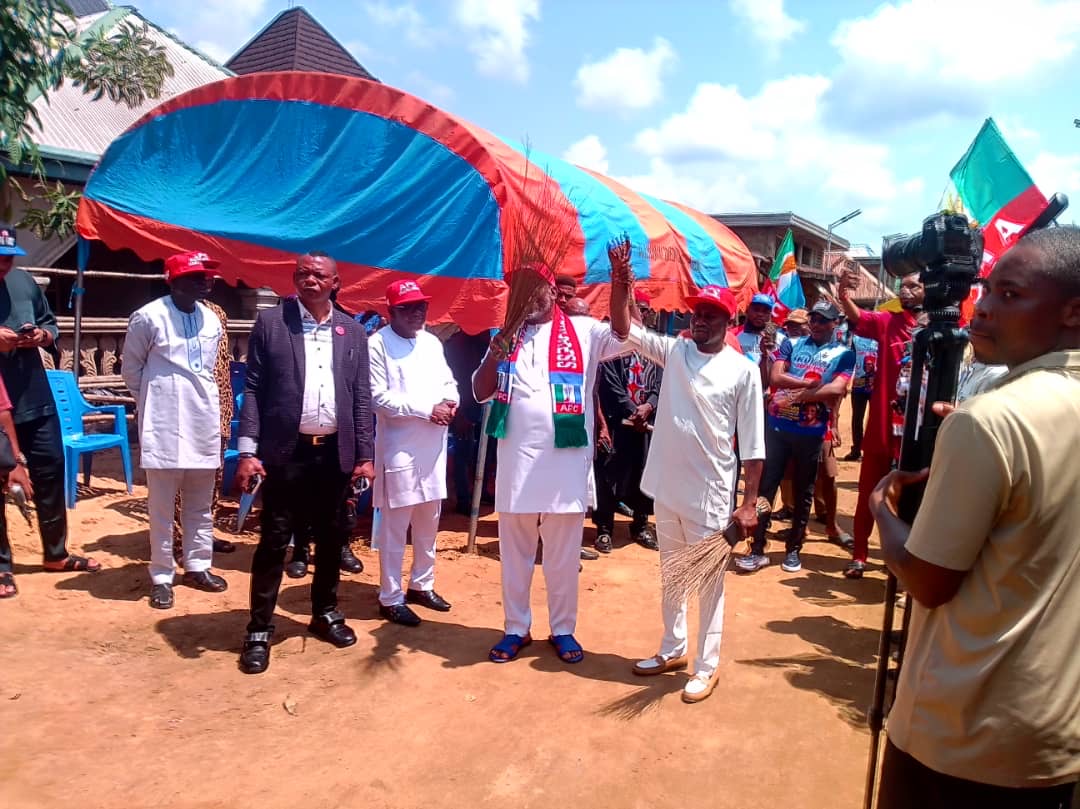
…insists on dev Omasi Gas deposit
By Chuks Collins, Awka
There shall no longer be any more rhetorics on development and insecurity to citizens of Anambra State especially the Anambra North senatorial zone once the All Progressives Congress (APC) Governorship candidate, Prince Nicholas Ukachukwu takes over as governor on Nov 8,2025.
This were the main message Prince Ukachukwu delivered to the zone at Anaku, and Omo communities respectively at the massively attended campaign rally late afternoon Friday .
Giving snippets from his Development Agenda for the area while addressing the visibly excited crowds at Omo and Anaku communities both in Ayamelum Council Area of Anambra State, the governorship candidate urged them to give him their all see the massive transmission he would unleash to the area.
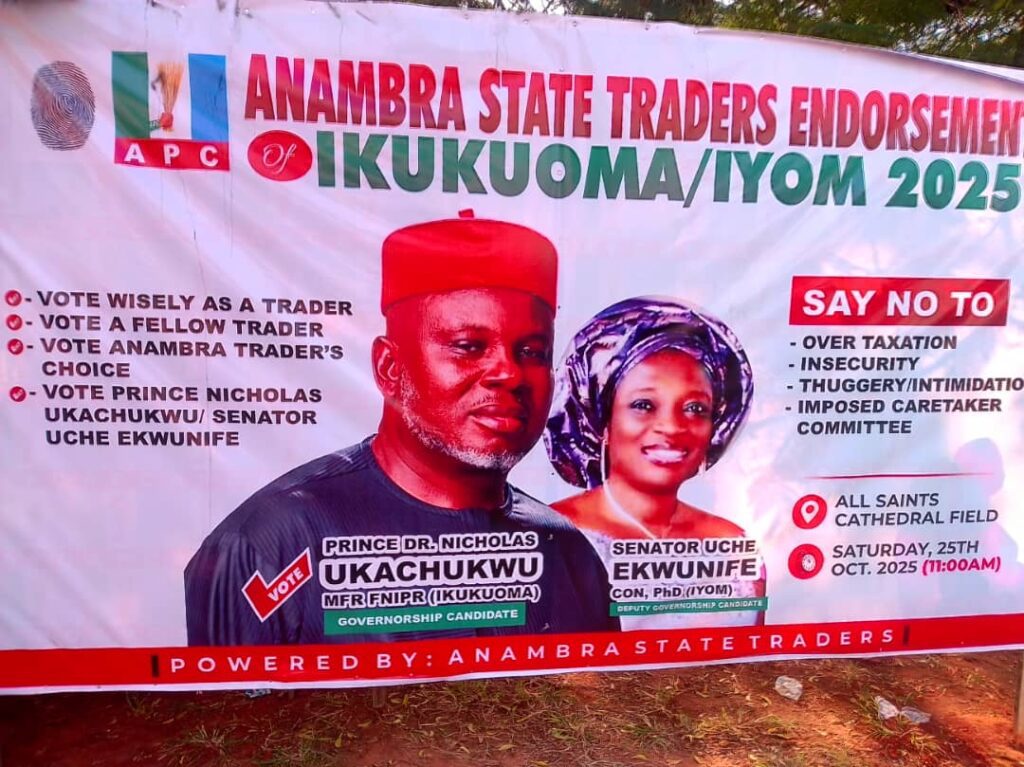

He assured them of his commitment to providing security, agricultural development through the Agric chain revolution, reliable power supply and the tapping of the Omasi Power Plant, which would provide 24-hour electricity to their full benefit.
He also plans to set up a university and to grant scholarships to students from the area.
Lamenting on the very poor dilapidated condition of virtually all their roads, Ukachukwu promised to construct good motorable network of roads, and to create employment opportunities for the teeming youths in the area, protection of their farm from herdsmen, creating an industrial park to generate employment opportunities.
He will equally create livable environment conducive for Ndi Anambra.
Key stakeholders from the area including Chief
Ikechukwu Maduka Nebuife, who is an APC stalwart, John Anigbogu icheke, past deputy Chairman Ayamelum; Eziagulu Offodile, former Social Democratic Party Chairman ( SDP) who led his members into APC at the venue encouraged Ayamelum people and all Anambra citizens to embrace and support Ukachukwu on Nov 8 , 2025.
They reiterated that Ukachukwu has vowed to improve and build roads in Ayamelum and the entire senatorial zone to enable them have a sense of belonging.
That the were fully convinced that he would fulfill the promise to create employment opportunities to stimulate growth in the state, promising security measures to ensure a safe environment for bussiness and investors.
They lamented that “we are not comfortable with the All Progressive Grand Alliance ( APGA) government anymore.
“We are like people forgotten, they kept giving us empty promises , we dont have roads in our community, we believed ikukuoma because he is a man that stick to his promises, everybody should work hard come together to deliver him to government house , time of deceit from APGA government has gone , a new era has emerged and that is Ukachukwu”
News
Anambra Election: Controversy trails Soludo’s cash-for-votes pledge
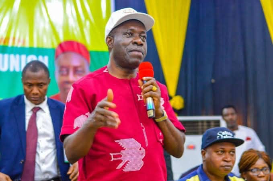
Governor Chukwuma Soludo has stirred controversy after announcing cash reward for every ward won by his party, the All Progressives Grand Alliance, in the forthcoming November 8 governorship election.
While speaking on Saturday during the party’s campaign rally in Umunze, Orumba South Local Government Area, Soludo promised to give his party supporters N1m.
He said, “When we were campaigning for the Senate, we knew we were going to win every ward in the South Senatorial Zone, but we still had some incentives. Any ward that APGA won received N1m, and we won all the wards in Orumba South.
“We promised each of these wards N1m and next week, we will redeem it. The ward that comes first will get N5m, the second N3m and the third N2m. That was the deal. For November 8, any ward that wins again will receive N1m, while the first three performing wards will get N5m, N2m and N1m respectively.”
The pledge provoked backlash from opposition parties and civil society organisations, which described the move as open inducement and a gross violation of the Electoral Act.
About 2.8 million registered voters are expected to participate in the poll, in which 16 political parties and their candidates will contest the governorship seat.

The newly appointed Chairman of the Independent National Electoral Commission, Prof. Joash Amupitan, had emphasised the significance of the Anambra election in consolidating the country’s democracy.
Opposition fumes
The National Vice Chairman of the All Progressives Congress in the South-East, Dr Ijeomah Arodiogbu, said Soludo’s action amounted to vote-buying and abuse of office.
“Clearly, this is vote-buying and against the electoral law. Soludo has been carrying out undemocratic activities in this election. He has been forcing communities to commit their votes through their leaders.
“The N1m offer is just one of many. We will write to INEC, EFCC, police, and other relevant security agencies about his actions,” Arodiogbu said.
Similarly, ADC’s National Publicity Secretary, Mallam Bolaji Abdullahi, urged INEC to act swiftly, describing Soludo’s promise as “a public confession of vote-buying.”
The Labour Party also criticised the governor, accusing him of weaponising poverty.
“This is not good for democracy. Why is he giving out money now that elections are near? This is vote-buying and manipulation. He has failed in governance and now wants to buy legitimacy with money. We will raise this matter at the next stakeholders’ meeting with INEC,” LP’s National Publicity Secretary, Obiora Ifoh, said.
A former Zonal Organising Secretary of the Peoples Democratic Party, Mike Ahumibe, also faulted the development, saying it undermined electoral integrity.
He said, “Once there is money involved, it is no longer free and fair. Elections should be about the people’s choice, not about who can pay the most.”
Gov’s move dangerous, INEC must act — CSOs
Also, some civil society organisations described the governor’s promise as dangerous.
The Executive Director of the Centre for Anti-Corruption and Open Leadership and rights activist, Debo Adeniran, said Soludo’s action had institutionalised vote-buying and monetised the electoral process in the state.
Adeniran said, “This is reprehensible. The governor of a state should be a shining example of good behaviour. Vote-buying is an electoral crime for which the governor could be tried once he relinquishes his immunity. It is a way of instigating the people against the law.
“What he has done amounts to electoral indiscipline and a criminal act. The authorities should stop him. INEC, under Amupitan, should take exceptional notice of it and apply the appropriate section of the law to discipline the governor. His immunity doesn’t cover electoral offences.”
Corroborating this view, a former National Chairman of the Inter-Party Advisory Council, Alhaji Yabagi Sani, described the governor’s move as a dangerous precedent capable of undermining democratic values.
He explained that the statement amounted to an open attempt to commercialise the electoral process, which could fuel electoral malpractice and weaken public confidence in governance.
Sani called on INEC, the police, and the EFCC to investigate the statement, noting that a formal letter should be sent to him to clarify his remarks.
He said, “It will have a lot of negative influence on politics because it means he has openly commercialised the election, and that is clear rigging. The money he’s talking about is the people’s money, which he wants to use to win the election because others do not have access to it. Even if they did, it’s not a good practice at all. That’s a bad idea for democracy.
“They preach against the use of money in elections, yet some of these people are commercialising the process to gain advantage. I think INEC, the police, and EFCC should also ask him to explain his statement. A letter should be sent to him to clarify why he made such a remark because it runs contrary to the laws of the land.”
Also, an election monitoring group, YIAGA Africa, described Soludo’s promise as a threat to democracy.
Speaking in an interview with Sunday PUNCH, the Media and Communication Officer of YIAGA Africa, Jennifer Dafwat, called for a stiffer punishment for politicians caught engaging in vote-buying.
Dafwat said Soludo’s statement further highlighted a deep-rooted problem in Nigeria’s political culture, where incentives and material rewards are used to influence voters’ choices long before election day.
She said, “Vote-buying is not limited to the act of exchanging money on election day. It includes any form of incentive meant to sway people’s decisions in favour of a candidate. What Governor Soludo said clearly falls within that category.”
She explained that such offers take advantage of widespread poverty and hunger, turning elections into transactions rather than contests of ideas and competence.
Reacting to the allegations, the Anambra State Commissioner for Information, Dr Law Mefor, dismissed the accusations of vote-buying, describing the governor’s promise as a simple act of motivation to energise supporters.
The commissioner accused opposition parties of deliberate mischief, insisting that the governor’s remarks were taken out of context.
“How does motivation for supporters amount to vote-buying? I don’t see how this amounts to selling and buying of votes, even if it’s true.
“Vote-buying, in my view, is the act of purchasing votes. A vote must be priced and bought; that’s vote-buying. So, how many votes has Soludo purchased by such a promise?” he queried.
Speaking further, he said “Though I didn’t hear the governor say it, I don’t see anything wrong with a leader motivating his supporters. We have two forms of motivation, intrinsic and extrinsic. Extrinsic motivation is material reward, which could be monetary.”
Over 22,000 ad hoc staff to be employed
Meanwhile, INEC has disclosed plans to deploy over 22,000 ad hoc staff of various categories to man the polling units across Anambra State for the forthcoming governorship election.
Speaking during a press briefing at the INEC headquarters in Awka on Saturday, the National Commissioner supervising Anambra and Chairman of the Tenders Board Committee, Dr Kenneth Ikeagu, said about 540 accredited journalists would also participate in the exercise.
According to information obtained by Sunday PUNCH, Anambra State has a total of 5,720 polling units.
Each unit, in line with INEC’s standard procedure, will be manned by four officials—one Presiding Officer and three Assistant Presiding Officers (APO I, II, and III)—bringing the total number of ad hoc personnel to approximately 22,800.
In addition, Supervisory Presiding Officers will be assigned to oversee activities at the various ward centres across the state.
When asked about the number of registered voters who had collected their Permanent Voter Cards as of Saturday, Ikeagu said he did not have the exact figure, noting that the collection exercise was still ongoing.
He added that the total number of collected PVCs would be made public at the end of the exercise.
Ikeagu stressed that the collection period would not be extended except on special directive from the INEC headquarters.
He further expressed confidence in the level of voter enlightenment ahead of the poll.
“Anambra people are very knowledgeable and have been adequately sensitised on how and when to vote. The election will start at 8:30am and end at 2:30pm. Anyone on the queue within that period will be allowed to cast their ballot,” he said.
PVC collection suffers setback
In the meantime, the PVC collection exercise, which began on Wednesday across the state and is expected to end on Sunday (today), has recorded low turnout across several parts of the state.
Findings by one of our correspondents, who visited collection centres in Amawbia, Awka, Onitsha, Nnewi, and other locations, revealed that the process had not progressed as smoothly as anticipated.
At most of the centres visited, registered voters were seen waiting in long queues to collect their cards, but with only one or two INEC officials available, the process moved slowly.
Some frustrated voters were observed leaving the centres without being attended to.
INEC officials at Uruagu Ward 11 and Akaboezem centres in Nnewi, as well as Imeudo Ward 1 centre in Onitsha attributed the slow pace to ongoing business and commercial activities across the state.
They, however, said the exercise had remained peaceful with no incidents of violence recorded.
Commenting on the exercise, the immediate past Publicity Secretary of the APC and a member of the party’s governorship campaign council, Okelo Madukaife, expressed dissatisfaction over the slow pace of the process.
Madukaife acknowledged that the exercise had been peaceful but lamented that it was moving too slowly due to insufficient INEC personnel.
“Apart from a few cases of law violations by APGA, things are generally running smoothly but slowly, based on the information available to us. INEC should deploy more personnel to speed up the process,” he said.
Also reacting, Johnson Okoye, the Special Assistant on Media to the Labour Party candidate, Dr George Moghalu, blamed INEC for the sluggish collection, saying the commission failed to create adequate awareness for the exercise.
He said, “This experience shows that while our people are willing and eager to collect their PVCs, the process itself needs urgent improvement. INEC must deploy more staff, provide additional equipment, and ensure that the process is faster and more efficient.
“Another challenge is lack of awareness. Many of our people, especially those from the LP strongholds, didn’t even know that their voter’s cards are ready for collection. I therefore call on INEC to intensify public sensitisation, especially in rural areas, through radio, community leaders, and local announcements.
“The PVC remains the only power the people have to determine the future of our state. I encourage every eligible voter to make the effort to collect theirs, because that card is our voice, our choice, and our tool to build a better Anambra.” (PUNCH)
-

 News22 hours ago
News22 hours agoJUST IN: Police ban Agunechemba, other vigilantes from functioning during Anambra election
-

 News3 days ago
News3 days agoNDLEA arrest Pretty Mike, 100 others at Lagos Club
-

 News2 days ago
News2 days agoTinubu meets newly appointed service chiefs
-

 News3 days ago
News3 days agoHerbalist hides in fridge as police raid shrine, recover two corpses in Delta
-

 News2 days ago
News2 days ago92-year-old Biya re-elected after 43 years in power
-

 News3 days ago
News3 days agoBREAKING: Hospitals to shut down as Nigerian doctors embark on nationwide strike October 31
-

 News3 days ago
News3 days agoEnugu Govt sets December 31 Deadline for ongoing 105 Layouts for Revalidation, Digitization Drive (FULL LIST)
-

 News21 hours ago
News21 hours agoPolice repel gunmen attack in Ezinifite, neutralize suspect, recover firearm




